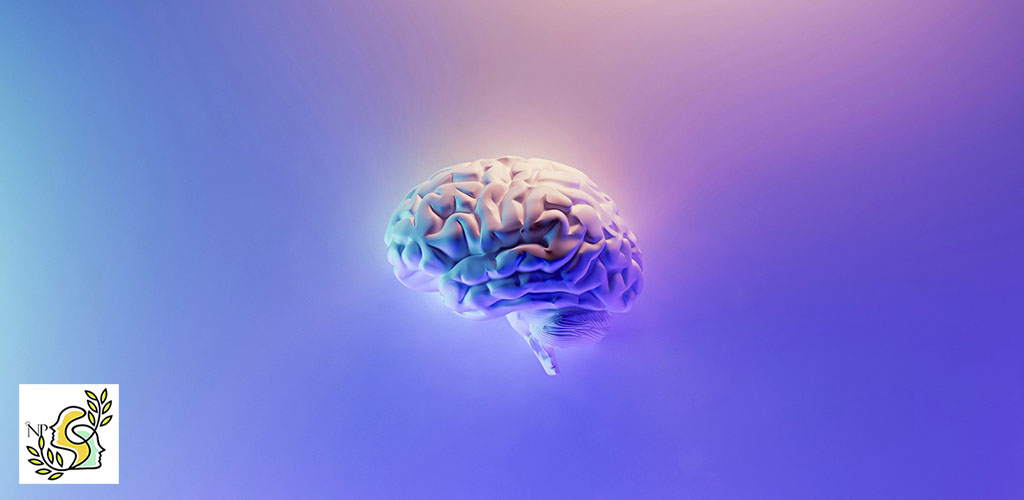Introduction: Neuropsychological testing and assessment serve as essential tools for understanding the intricate relationship between brain function and behavior. These assessments are designed to measure cognitive abilities such as memory, attention, language, problem-solving, and executive functioning, providing invaluable insights into the functioning of the central nervous system. By identifying cognitive deficits, these tests aid in diagnosing neurological and psychological disorders, tracking disease progression, and guiding personalized interventions. This essay aims to explore the principles, methodologies, and clinical applications of neuropsychological assessments, emphasizing their role in advancing our understanding of brain-behavior dynamics and improving patient care. Through this analysis, the objective is to highlight the importance of these assessments in both research and clinical settings, as well as their potential to contribute to innovative approaches in neuroscience and mental health.
Table of Contents
Neuropsychological testing and assessment

Clinical neuropsychology is a specialized discipline within psychology focused on understanding the interplay between brain function and human behavior, both in normal and pathological states. Clinical neuropsychologists are professionals with advanced training at the doctoral level, complemented by fellowship experience, enabling them to employ scientifically grounded methods for assessment and intervention.
Neuropsychologists utilize a variety of validated tools, including puzzle-based materials, oral questions, and written tests, to objectively evaluate diverse cognitive and emotional functions. These tools are standardized against large normative samples of age-matched, healthy individuals, facilitating an accurate assessment of deviations from expected performance. The data derived from neuropsychological testing are integrated with other diagnostic information to provide a comprehensive understanding of a patient’s cognitive, behavioral, and emotional status, which serves as the foundation for informed clinical decision-making.
Neuropsychological evaluations are particularly valuable for offering detailed insights into cognitive and emotional functioning that are often unattainable through other diagnostic methods. By using standardized assessments, neuropsychologists can identify cognitive decline, distinguish neurological disorders from psychiatric conditions, ascertain neurocognitive etiologies, and elucidate the connections between neurological factors and daily functioning challenges. These assessments guide family physicians and other healthcare providers in addressing diagnostic uncertainties and devising personalized management strategies for conditions such as mild cognitive impairment, dementia, traumatic brain injury, and other disorders affecting cognitive function. Notably, neuropsychological testing has demonstrated nearly 90% accuracy in differentiating Alzheimer’s disease from non-dementia conditions. Furthermore, combining neuropsychological findings with injury severity variables enhances predictions of functional outcomes.
A neuropsychological evaluation offers practical benefits, such as evaluating functional capacities (e.g., driving ability, independent living potential) and determining decision-making competencies regarding healthcare or financial matters. Patients and their families often report that these evaluations enhance their understanding and coping mechanisms for cognitive challenges. Importantly, neuropsychological testing can:
- Detect the onset and type of mild cognitive impairment and dementia, enabling early intervention.
- Assess driving risk in individuals with dementia.
- Determine decision-making capacity in those with cognitive impairments.
- Identify cognitive deficits, predict functional outcomes, and monitor recovery after traumatic brain injury.
Neuropsychological evaluations are complementary to neuroimaging and electrophysiological techniques, such as computed tomography (CT), magnetic resonance imaging (MRI), electroencephalography (EEG), and positron emission tomography (PET). While these methods assess structural integrity, electrical activity, and metabolic function, they may lack sensitivity in diagnosing certain neurological conditions and cannot directly measure the brain’s functional output. In contrast, neuropsychological assessments objectively evaluate the cognitive, emotional, and behavioral consequences of cerebral injury or disease.
A typical neuropsychological assessment involves:
- Testing intellectual functioning, attention, learning and memory, reasoning and problem-solving, visuospatial skills, language, mood, and personality.
- Conducting interviews with the patient and, when feasible, a family member or friend.
- Reviewing medical records.
Indications for neuropsychological evaluation encompass a wide array of neurological and psychiatric conditions, including but not limited to:
- Attention-deficit/hyperactivity disorder (ADHD) and developmental dysexecutive syndromes.
- Educational and occupational difficulties.
- Learning disabilities and intellectual disability.
- Autism spectrum disorder (ASD).
- Giftedness with concurrent learning challenges.
- Long-term cognitive effects of cancer treatments.
- Psychiatric conditions such as schizophrenia, severe depression, and bipolar disorder.
- Alzheimer’s disease and other dementia-related conditions.
- Cognitive deficits stemming from neurological or congenital conditions (e.g., seizure disorders, traumatic brain injuries, brain tumors, hydrocephalus, premature birth).
- Stroke and sudden cognitive changes or MRI findings requiring further evaluation.
- Forensic applications, including disability and return-to-work assessments.
By integrating neuropsychological findings with other diagnostic modalities, clinicians can gain a holistic understanding of a patient’s cognitive and emotional health, ultimately guiding effective interventions and improving quality of life.
Here are a short video about Neuropsychological testing and assessment meaning:
Neuropsychological test sample

Neuropsychological evaluations involve a comprehensive assessment of various domains of cognitive and behavioral functioning, including intellectual capabilities, attention, learning and memory, reasoning, problem-solving, visuospatial skills, language, mood, and personality. These evaluations typically include a detailed interview with the patient and, whenever feasible, a family member or close acquaintance to gather a more complete understanding of the individual’s cognitive and functional status.
A range of standardized tests is commonly employed during these evaluations. For example, the Wechsler Adult Intelligence Scale is utilized to measure intelligence and cognitive ability. This test assesses multiple facets such as memory and processing speed through tasks like visual puzzles, block design, and matrix reasoning. Similarly, the Wechsler Memory Scale specifically evaluates different aspects of memory performance.
To contextualize the cognitive findings and evaluate their impact on daily functioning, neuropsychologists often explore the patient’s experiences and concerns through targeted questions. Examples include inquiries about perceived changes in memory, attention, or problem-solving abilities, challenges with previously manageable tasks, and strategies used to manage essential responsibilities such as finances, medications, and appointments. These insights help link cognitive deficits to real-world implications, guiding diagnosis and intervention strategies.
Sample Neuropsychological Test Questions
Cognitive assessments are essential tools used to evaluate various aspects of mental functions, including memory, attention, executive functioning, problem-solving, and language abilities. These assessments provide valuable insights into an individual’s cognitive health and can highlight areas requiring further investigation. Below is a description of key cognitive tests used in clinical and research settings.
Memory Assessments
1. Immediate Recall
Immediate recall tests measure the capacity to retain information for a short duration. Participants listen to a list of words (e.g., apple, chair, dog, house, pencil) and are then asked to recall as many words as possible in any order. This test evaluates short-term memory and the ability to retain recently acquired information.
2. Delayed Recall
Delayed recall involves recalling words from an initial list after a 10-minute interval without hearing the list again. This assesses the retention of information over time, providing insights into both short-term and long-term memory processes.
Attention Assessments
1. Digit Span Test
The Digit Span Test evaluates attention and working memory.
- Forward: Participants repeat a sequence of numbers in the same order (e.g., 4, 7, 3, 9).
- Backward: Participants reverse the sequence (e.g., 6, 2, 8, 5).
These tasks help assess the ability to retain and manipulate numerical information.
2. Trail Making Test (Part A)
In this test, participants connect a series of numbers in ascending order as quickly as possible (e.g., 1 → 2 → 3 → 4 → 5). This task assesses visual attention, processing speed, and sequencing ability.
Executive Functioning
1. Verbal Fluency
Verbal fluency tests evaluate an individual’s ability to generate words within a specific category, such as words starting with a particular letter (e.g., F: flower, frog). This task examines language production, flexibility, and inhibition of irrelevant responses.
2. Wisconsin Card Sorting Test
Participants match a series of cards based on color, shape, or number, with feedback provided for correctness (“Correct” or “Incorrect”). This test assesses cognitive flexibility, problem-solving, and rule-based thinking.
Problem-Solving
1. Tower of Hanoi
The Tower of Hanoi test requires participants to move a series of disks from one peg to another following specific rules (e.g., only one disk can be moved at a time, and a larger disk cannot be placed on a smaller disk). This task assesses planning, strategy formation, and spatial reasoning.
Language Assessments
1. Picture Naming
Participants are shown simple images (e.g., cat, tree, book) and are asked to name them. This task evaluates language retrieval and naming abilities.
2. Sentence Repetition
Participants repeat a sentence exactly as heard (e.g., “The quick brown fox jumps over the lazy dog”). This assesses auditory processing, memory, and verbal reproduction skills.
Each of these cognitive assessments has standardized scoring criteria tailored to age, education level, and cultural background. Poor performance in these tasks may indicate cognitive impairment or localized brain dysfunction, necessitating further diagnostic exploration.
Neuropsychological testing for ADHD in adults
Attention Deficit Hyperactivity Disorder (ADHD) is a prevalent mental health disorder that persists across the lifespan and can be diagnosed in adults. In early adulthood, ADHD frequently presents alongside comorbid conditions such as depression, mood disorders, conduct disorders, and substance use disorders. Adults with ADHD often face challenges in maintaining consistent work performance, completing daily responsibilities, and managing household tasks. Additionally, relationship difficulties are common, leading to chronic feelings of frustration, guilt, blame, and shame.
Neuropsychologists, with specialized training in brain functioning, neuroanatomy, and the interplay between brain and behavior, play a critical role in the assessment of ADHD. In evaluating ADHD in adults, neuropsychologists utilize a range of standardized cognitive tests and behavioral questionnaires. Depending on the presence of co-occurring conditions, the assessment may focus narrowly on ADHD symptoms or adopt a broader approach to rule out other complicating factors. These assessments typically examine cognitive domains such as intelligence, memory, learning, attention, problem-solving, organizational skills, and emotional regulation. Following the data analysis, clinicians produce a comprehensive report that includes tailored treatment recommendations to enhance the individual’s daily functioning.
Neuropsychological testing serves as a vital tool in diagnosing ADHD in adults by assessing core cognitive functions such as attention, memory, and processing speed. Common tests employed in this context include:
- Continuous Performance Test (CPT)
- Wisconsin Card Sorting Test (WCST)
- Stroop Test
- Trail Making Test (TMT)
These assessments allow neuropsychologists to analyze the data comprehensively and generate a report with treatment recommendations.
Neuropsychological tests provide valuable insights into an individual’s strengths and weaknesses, facilitating the development of targeted interventions. Additionally, these tests can help substantiate a patient’s complaints, which may improve treatment adherence and outcomes.
In addition to neuropsychological testing, other diagnostic methods utilized by neurologists include a thorough medical history review, behavioral assessments, rating scales, and advanced imaging techniques such as MRI or CT scans.
Conclusion
Neuropsychological testing and assessment play a crucial role in understanding the relationship between brain function and behavior. These assessments are essential for diagnosing and managing neurological, psychiatric, and cognitive disorders, providing valuable insights into brain-behavior interactions. By evaluating various cognitive domains such as memory, attention, language, and executive functions, neuropsychological tests help to identify deficits, track changes over time, and inform treatment strategies. Furthermore, they contribute to research on brain function and contribute to personalized approaches to healthcare, enhancing the quality of life for individuals with neurological and psychological challenges.
Finally, if you are interested in this topic, we suggest that you watch this complete and comprehensive video from Dr. Keith Donohue:
Reference:
- https://www.sciencedirect.com/science/article/abs/pii/S155252600700564X
- https://www.tandfonline.com/doi/abs/10.1080/13854046.2018.1552762
- https://pn.bmj.com/content/18/3/227.abstract
- https://books.google.com/books?hl=en&lr=&id=FroDVkVKA2EC&oi=fnd&pg=PA3&dq=Neuropsychological+testing+and+assessment&ots=q8XjURQq4R&sig=5ZBZoonOj0jTrRHFBXsipBmg0xw#v=onepage&q=Neuropsychological%20testing%20and%20assessment&f=false
- https://www.tandfonline.com/doi/abs/10.1080/13854046.2018.1521993
- https://www.neurology.org/doi/abs/10.1212/WNL.49.4.1180-a
- https://books.google.com/books?hl=en&lr=&id=kezqJb69OlAC&oi=fnd&pg=PA121&dq=Neuropsychological+testing+and+assessment&ots=EB_4dL1OhR&sig=Z3NLZRkFnmSVG51yw9pq-gYl0As#v=onepage&q=Neuropsychological%20testing%20and%20assessment&f=false
- https://www.cambridge.org/core/journals/journal-of-the-international-neuropsychological-society/article/abs/neuropsychological-assessment-past-and-future/96AF2187E2F594EE361577FD2B89F164
- https://books.google.com/books?hl=en&lr=&id=nfbuEAAAQBAJ&oi=fnd&pg=PR9&dq=Neuropsychological+testing+and+assessment&ots=qVApx9bWcF&sig=JjJ-BJeIZ70Nk7r7CaZluUMdnA8#v=onepage&q=Neuropsychological%20testing%20and%20assessment&f=false
- https://pmc.ncbi.nlm.nih.gov/articles/PMC1073539/
- https://link.springer.com/article/10.1007/s11065-023-09596-1
- https://www.tandfonline.com/doi/abs/10.1080/02699052.2024.2376261
- https://www.mdpi.com/2075-4426/14/1/113
- https://books.google.com/books?hl=en&lr=&id=V_AwEQAAQBAJ&oi=fnd&pg=PR5&dq=Neuropsychological+testing+and+assessment&ots=idUmKceIrC&sig=HWsuuW6XHZ5reyoVvFMJYQtNy6g#v=onepage&q=Neuropsychological%20testing%20and%20assessment&f=false




